Bringing COVID-19 vaccination at the foothills of South Sudan’s most distant communities
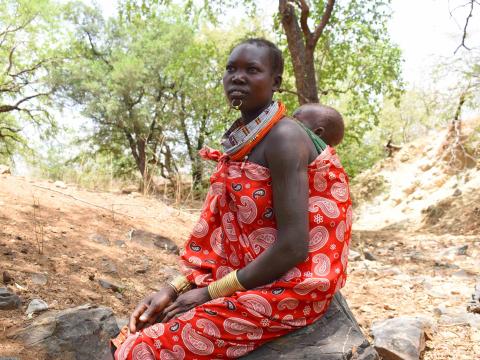
“I have not heard of anyone who got vaccinated in this village. I am happy to be the first, not only in my family, but also in my community,” 26-year-old Natabo says.
The mother of three had her child treated for malaria during the COVID-19 outreach vaccination session in Nasikana. She shared that her daughter Natome was sick for three days and she tried to treat her using local herbs.
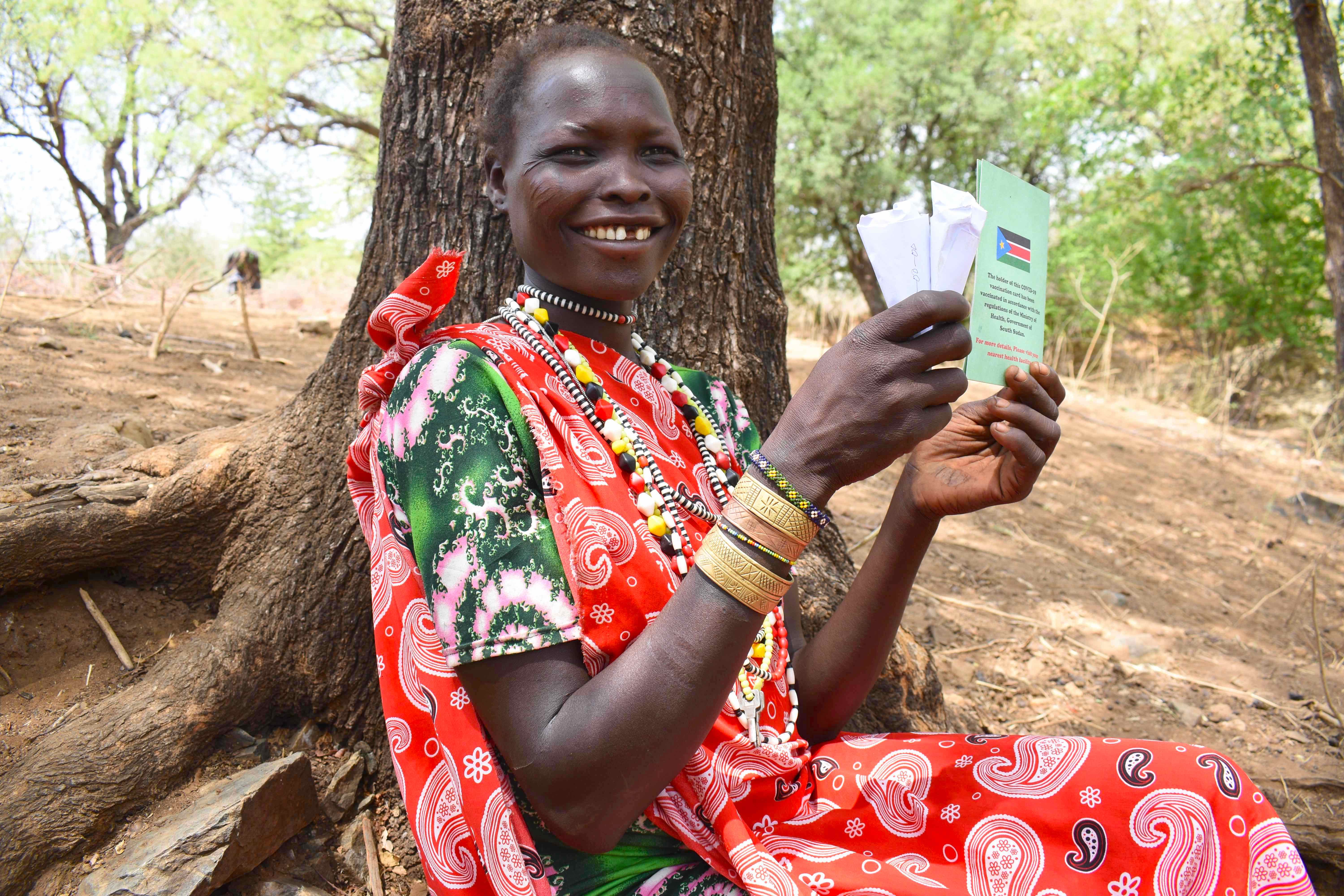
Due to limited access to basic health services, the people have resorted to treating themselves with available resources around them. Nabukio, a 30-year-old pregnant mother, explained that the situation gets even more complicated during the rainy season.
“When it is raining, it takes 4-5 hours to reach Napetait Primary Health Centre, a facility supported by the Health Pooled Fund through Medical Collaboration Committee. We resort to treatment using local herbs than walking for a long distance,” she adds.
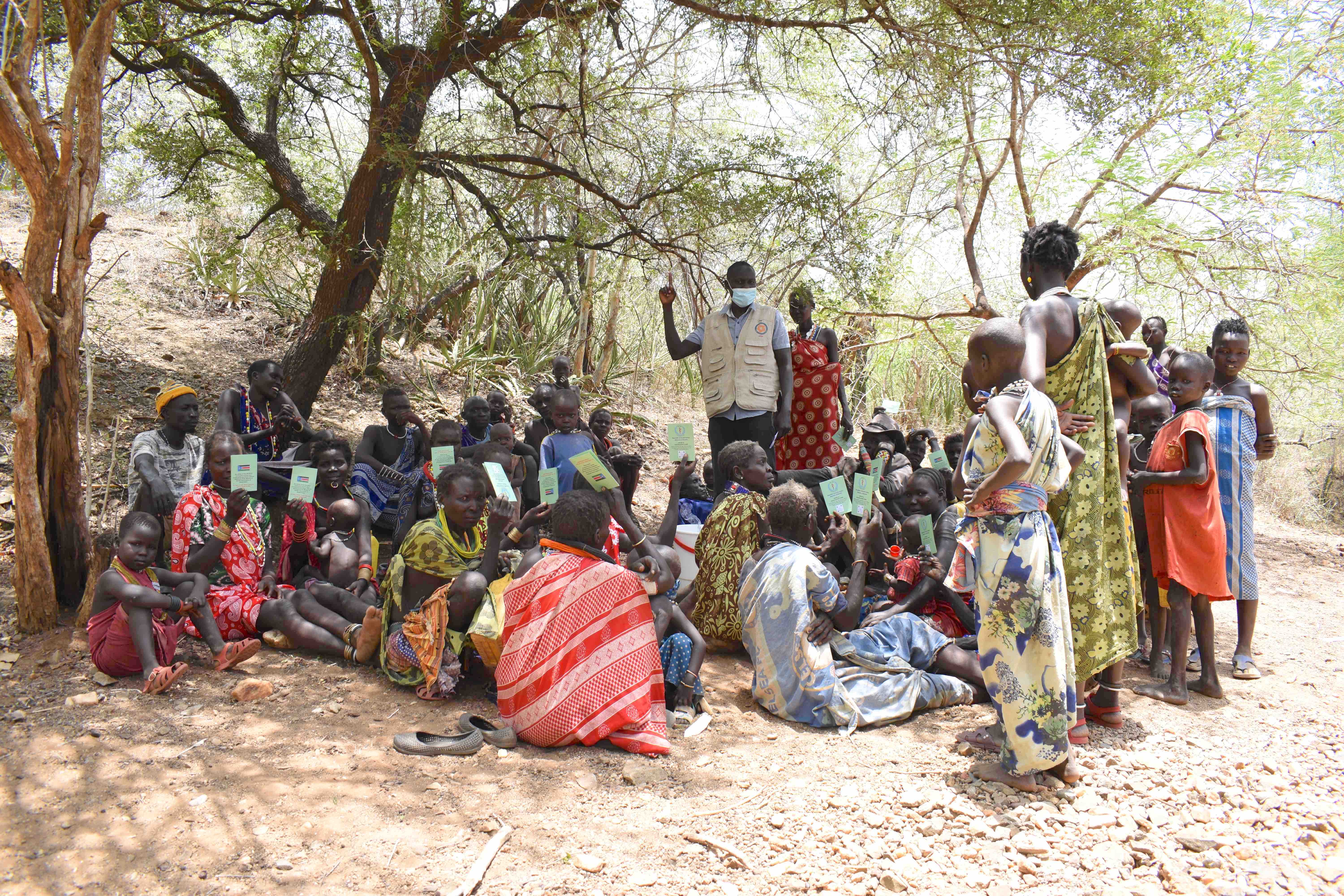
Nabukio was also one of the first of the community people who were mobilised and received the COVID-19 vaccine conducted near the water point in the village. Nasikina village, where Natabo and Nabukio reside, is part of South Sudan’s Kapoeta County in Eastern Equatoria State.
It has no schools and health facilities and is 26 kilometres away from town. Walking from the village takes at least two hours to the primary health care centre, which is the nearest health facility. The population is mainly composed of cattle keepers.
I was scared the COVID-19 injection was painful but it was not. I decided to get it after seeing other women did it, even my neighbour.
This is one of World Vision’s priority areas for the COVID-19 outreach vaccination before the onset of the rainy season through the CORE Group Polio Project. On April 1, 2022, a team of vaccinators was able to reach 107 people, 80 of them women, above the age of 18 years.
The COVID-19 component of the project aims to improve access to the vaccines in hard-to-reach communities’ through outreach and mobile campaign. Kapoeta’s county health department used this opportunity to respond to other common diseases.
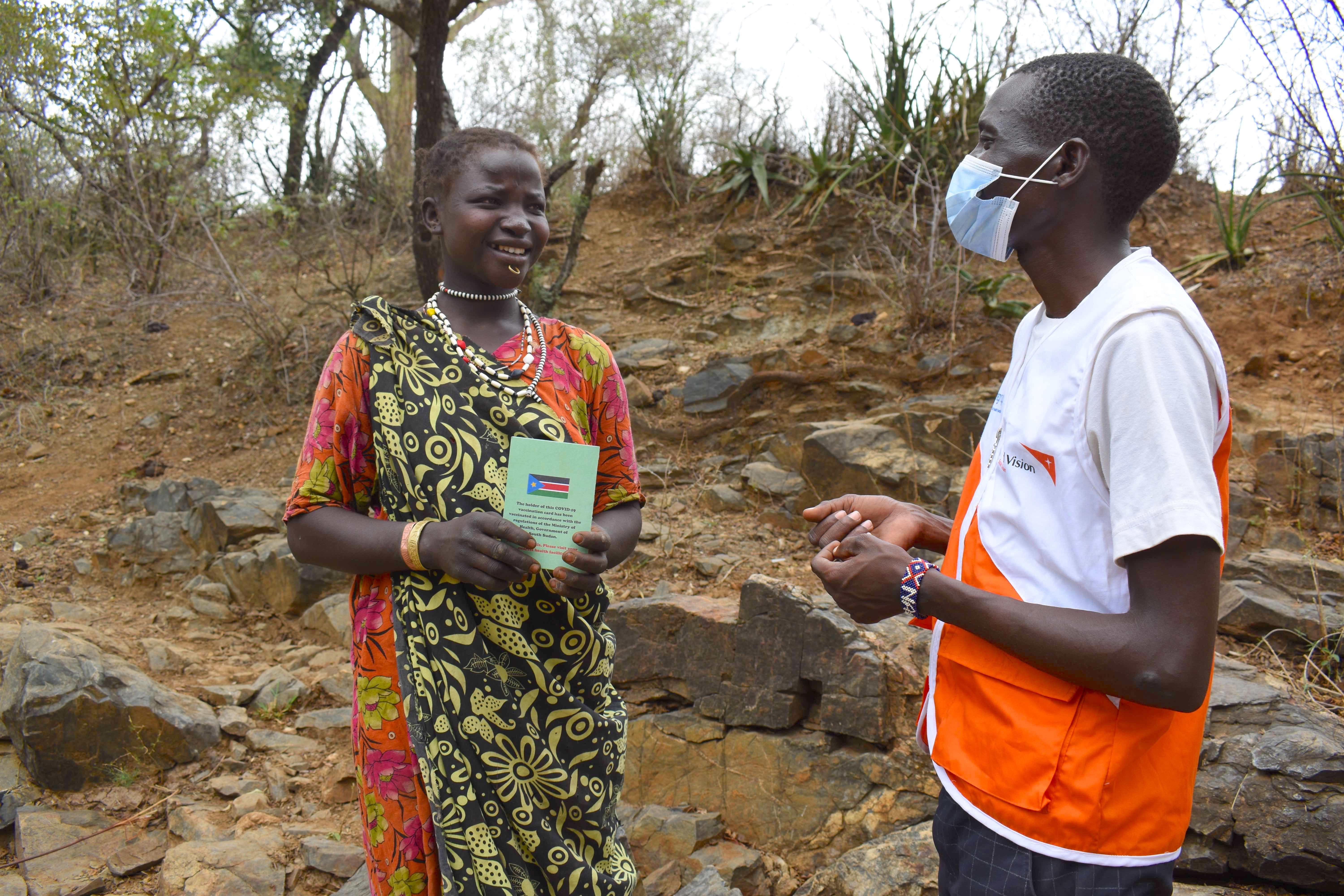
A total of 120 people received treatment from malaria and malnutrition, apart from various respiratory, urinary tract, gastrointestinal, and fungal infections. Natabo, 30, says, “I was scared the COVID-19 injection was painful but it was not. I decided to get it after seeing other women did it, even my neighbour.”
Lowi Elijah, CORE Group Polio Project Supervisor for Kapoeta South County says, “The COVID-19 integration with other health services has helped the community avail of the vaccine as well as treatments of common diseases. They also attended the awareness activities on prevention and good practices to avoid them.”
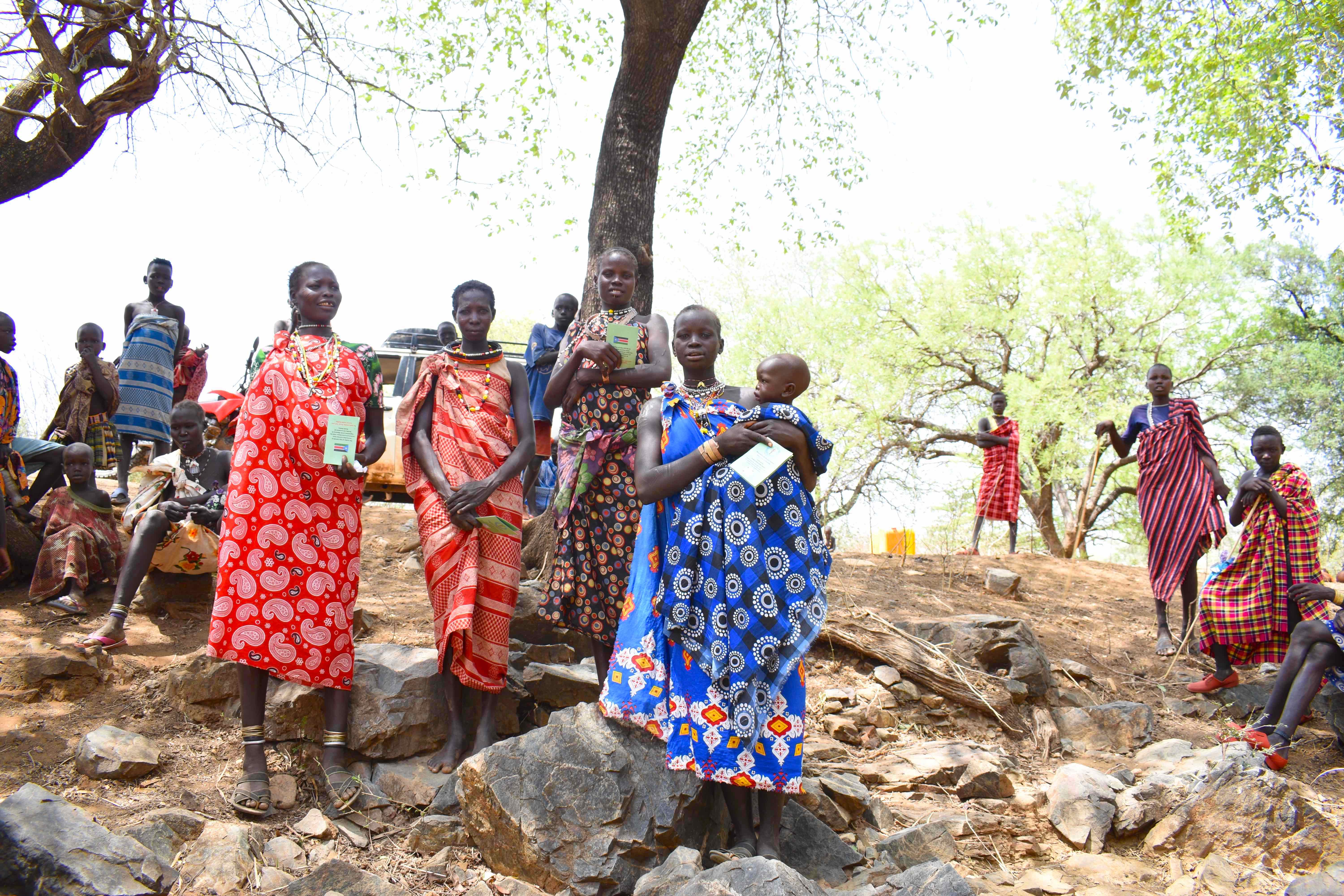
World Vision’s CORE Group Polio Project is supported by the United States Agency for International Development (USAID) and is implemented through the Organisation for People's Needs (OPEN), a local organisation working in eight counties of Eastern Equatoria State.
Story by Jemima Tumalu, Communications Officer